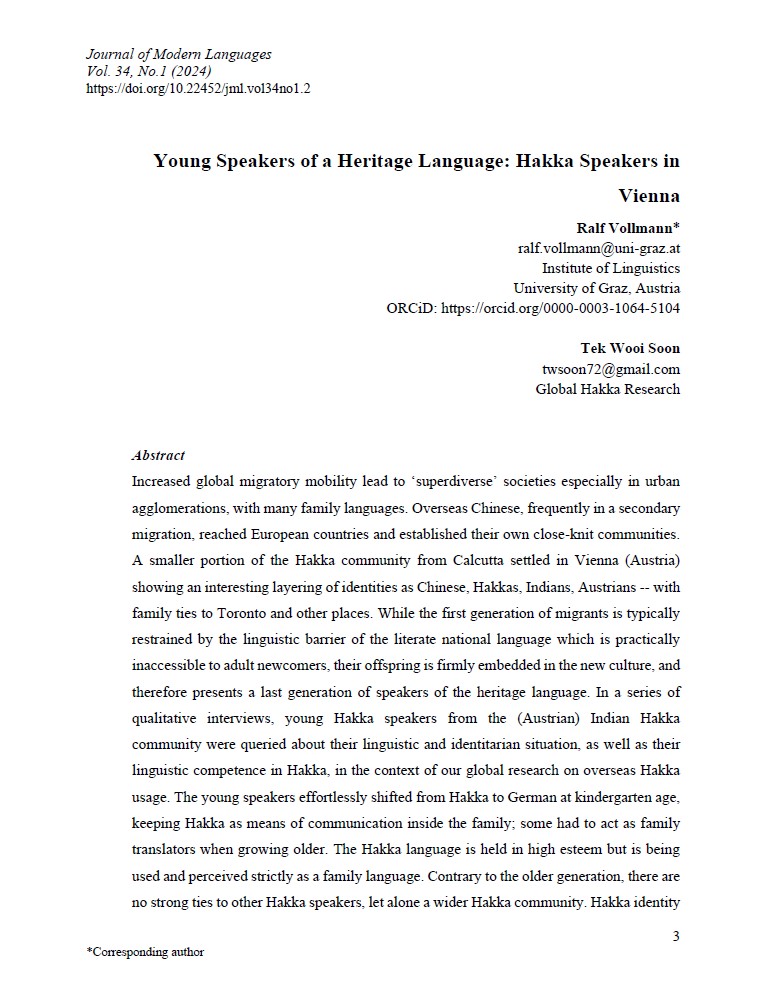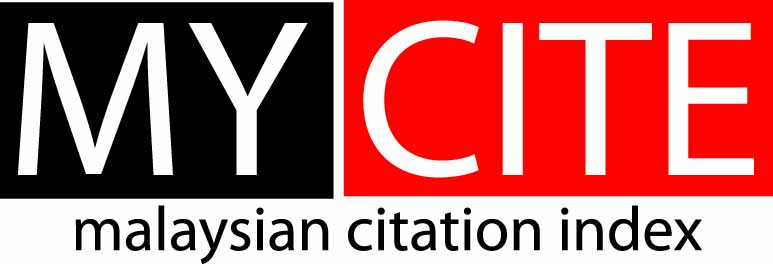Young Speakers of a Heritage Language: Hakka Speakers in Vienna
DOI:
https://doi.org/10.22452/jml.vol34no1.2Keywords:
Hakka Speakers, Heritage language, Language Identity, Language Shift, Minority Language SpeakersAbstract
Increased global migratory mobility lead to ‘superdiverse’ societies especially in urban agglomerations, with many family languages. Overseas Chinese, frequently in a secondary migration, reached European countries and established their own close-knit communities. A smaller portion of the Hakka community from Calcutta settled in Vienna (Austria) showing an interesting layering of identities as Chinese, Hakkas, Indians, Austrians -- with family ties to Toronto and other places. While the first generation of migrants is typically restrained by the linguistic barrier of the literate national language which is practically inaccessible to adult newcomers, their offspring is firmly embedded in the new culture, and therefore presents a last generation of speakers of the heritage language. In a series of qualitative interviews, young Hakka speakers from the (Austrian) Indian Hakka community were queried about their linguistic and identitarian situation, as well as their linguistic competence in Hakka, in the context of our global research on overseas Hakka usage. The young speakers effortlessly shifted from Hakka to German at kindergarten age, keeping Hakka as means of communication inside the family; some had to act as family translators when growing older. The Hakka language is held in high esteem but is being used and perceived strictly as a family language. Contrary to the older generation, there are no strong ties to other Hakka speakers, let alone a wider Hakka community. Hakka identity and family origin relate back to India and often globally spread-out families with whom English is the best means of communication. A Chinese ancestry is a fact without much influence on the lives. The linguistic competence in Hakka is restricted to their own dialect and familial matters, as is typical of ‘weak speakers’ of a declining minority language. The language shift to German, higher education, and their emancipation from the ‘ethnic’ profession of running Chinese restaurants are indications of the full integration of the next generation into the local culture.
Downloads












